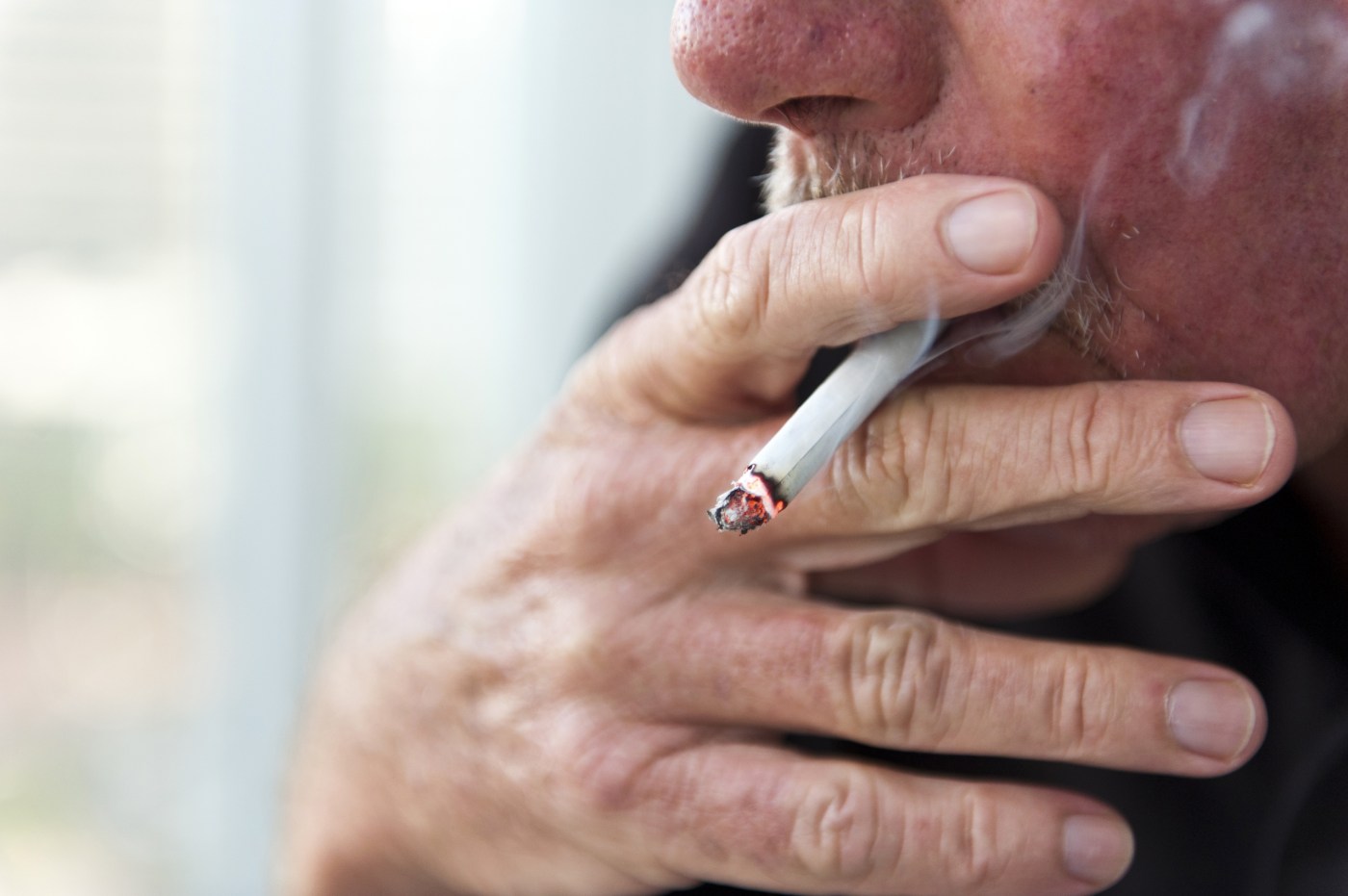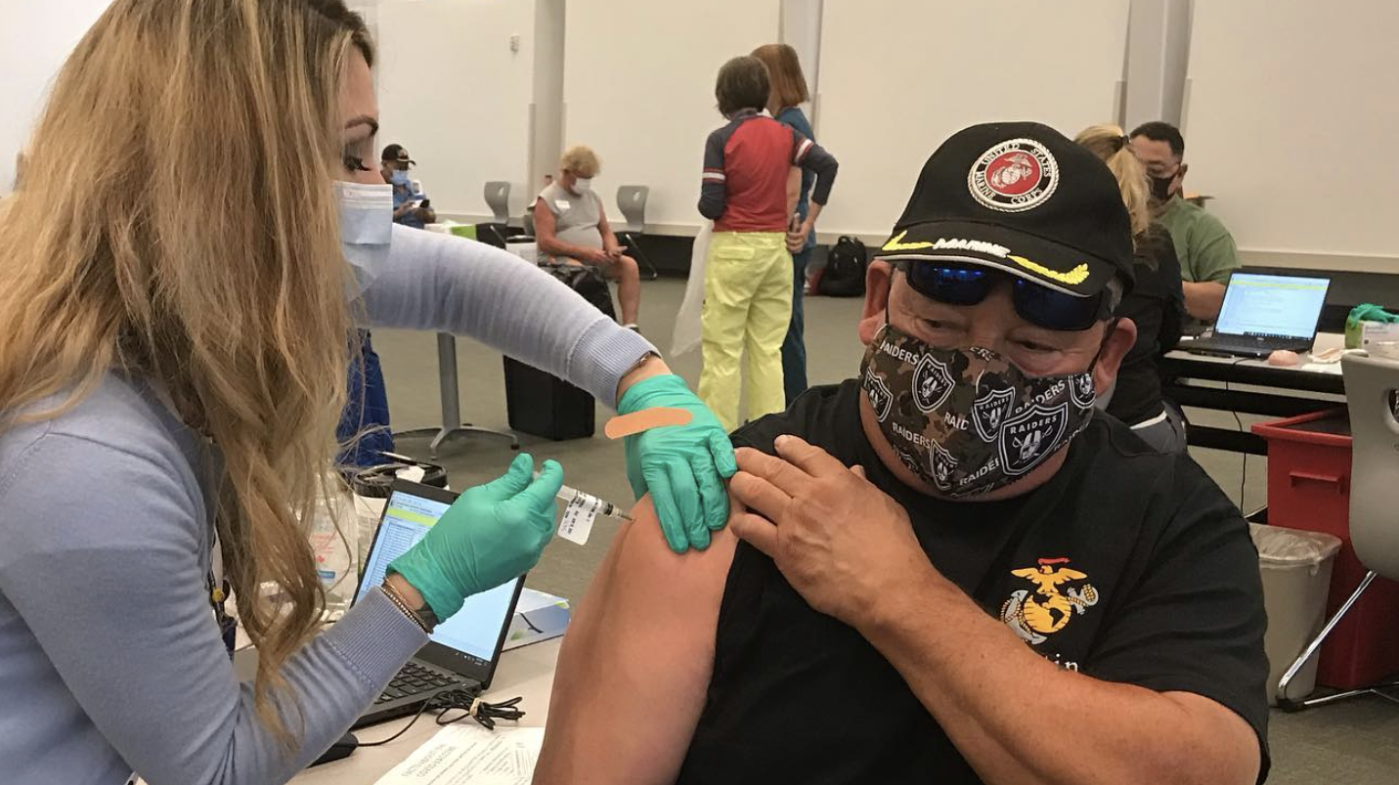In March 2020, the Southeast Louisiana VA in New Orleans identified the first COVID-19 positive patient in the state and proceeded to care for a surge of Veterans with the virus.
Dr. Amanda Raines, a clinical scientist at that VA hospital, halted her research on Veteran PTSD to focus on COVID-19.
“While frontline providers quickly mobilized to manage the immediate needs of patients,” she says, “my colleagues and I put our research skills to use looking for key answers that could inform the broader VA, the nation and the world about the impact of this deadly disease.”
In one of her studies, Raines led research that examined risk factors for COVID-19 deaths among Veterans, namely lifetime tobacco use. In a study population of 440 Veterans, about half were lifetime tobacco users, which meant they smoked at some point in their life. The average age of the predominantly male cohort was 61.
Smoking increases risk for conditions including cancer, heart disease, COPD
Raines and her team found that older male Veterans, plus those with immunodeficiency or endocrine or lung diseases, were at higher risk of death, with lifetime tobacco use predicting mortality above and beyond those factors. Immunodeficiency is a failure of the immune system to adequately protect the body from infections. The endocrine system consists of glands and organs that make hormones and release them into the blood so they can travel through the body.
“Findings highlight the importance of assessing for lifetime tobacco use among [COVID-19] positive patients and the relative importance of lifetime tobacco use as a risk factor for increased death,” the researchers write.
The study results appeared in the journal “Addictive Behaviors” in February 2021.
“Cigarette smoking is the leading cause of preventable death in the United States,” Raines says. “Smoking is also known to cause and increase risk for a number of physical health conditions including cancer, heart disease and chronic obstructive pulmonary disease [COPD]. Given that COVID-19 has a particularly strong impact on lung functioning, it made sense that a history of cigarette smoking would negatively impact the course of COVID-19.
“The findings, coupled with the well-known negative health consequences of tobacco use, underscore the continued need for tobacco cessation efforts within VA and other health care systems,” she adds.
Researcher surprised by finding in study
COPD is a group of respiratory diseases that limit airflow and make it hard to breathe. It’s usually linked to an abnormal inflammatory response in the lungs to noxious particles or gases, such as cigarette smoke.
Because of the known health problems and co-occurring health conditions that smoking can cause, isn’t it obvious that tobacco use would exacerbate the condition of Veterans with COVID-19 who were also smokers? COVID-19 is a respiratory disease that can scar the lungs and cause a range of breathing problems.
“Exacerbate, yes,” Raines says. “But to predict death above and beyond almost all known demographic and medical correlates of COVID-19 was rather surprising. This finding underscores the need for more research in this area.”
More Information
Click here to read the full article.
Click here to learn more about VA research.
Click here to for information on VA research during the COVID-19 pandemic.
Topics in this story
More Stories
Respiratory illness season is approaching. Vaccines can help protect from flu, RSV (Respiratory Syncytial Virus), COVID-19, and pneumococcal pneumonia. These vaccines are available free of charge to Veterans receiving care at VA.
In a new series that highlights advancements in VA health care, VA researchers and clinicians are appearing on a Veteran-themed media platform—Wreaths Across America Radio—to tout their critical work.
Recently published findings from the VA Disrupted Care National Project […]







